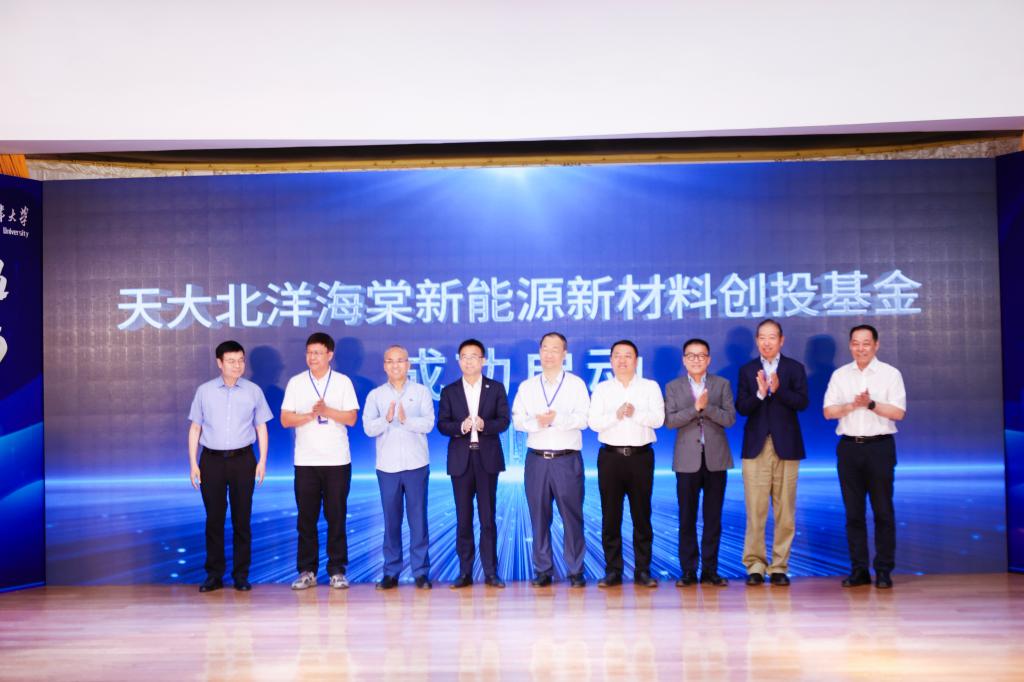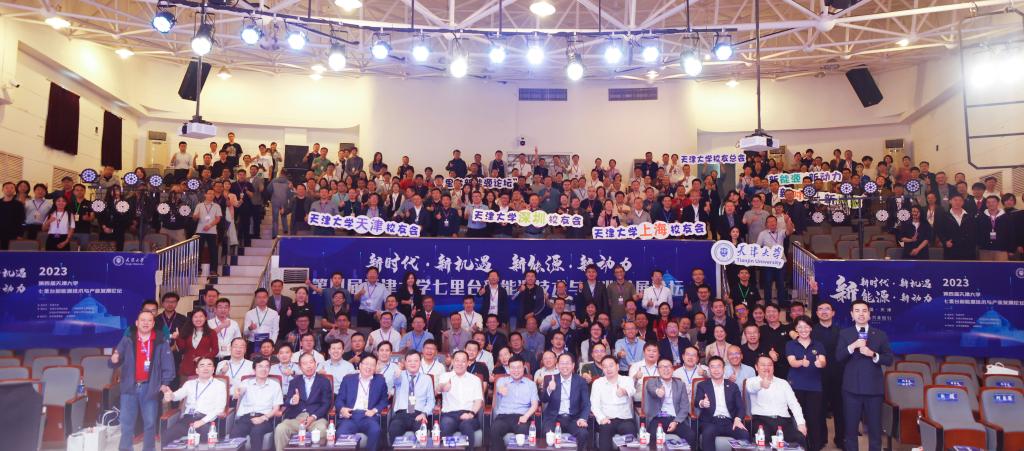On October 1st, the 4th Tianjin University Qilitai New Energy Technology and Industry Development Forum kicked off in Tianjin. Academicians in relevant fields, renowned experts, industry leaders, and entrepreneurs from both home and abroad gathered together and discussed about how to unlock the value of new energy distribution and storage and achieve the "dual carbon" goals. During the forum, the 500-million-yuan TJU Peiyang Haitang New Energy and Materials Investment Fund was officially launched by Tianjin University, acting as a gift for the celebration of the National Day.

Energy security and safety are crucial to national economy and people's livelihoods, while low-carbon energy development pertains to the future of humanity. As the world's largest energy consumer and producer, China has been actively developing non-fossil fuel energy industries in recent years. Accelerating new energy technology innovation and industrial upgrades is not only essential for establishing a new energy system and safeguarding national energy security, but also an important means to explore new fields, create new pathways for development, and shape new driving forces and advantages. Therefore, the convening of the New Energy Technology and Industrial Development Forum by Tianjin University came at a right time to meet the urgent needs of our country.
Founded in 2018, the forum has been successfully held for three sessions. With the theme of "New Era, New Opportunities, New Energy, New Momentum", this year’s forum featured keynote speeches, round-table discussions and open dialogues, focusing on topics such as carbon neutrality, energy transition, source-grid-load-storage, hydrogen energy, as well as the trend of new technological and industrial development. Esteemed academicians, including Wang Chengshan of the Chinese Academy of Engineering, Zhao Tianshou of the Chinese Academy of Sciences, and Qiao Shizhang of the Australian Academy of Sciences, were invited to deliver keynote speeches on the latest research on new distribution systems, energy storage, carbon-neutral energy storage technologies and water-splitting hydrogen production techniques. Prominent experts, scholars and entrepreneurs also showcased their latest laboratory research achievements and company R&D directions. The forum aimed to create an interdisciplinary platform to deepen exchanges, promote close industry-university-research cooperation and drive cross-disciplinary innovation.

In the realm of new energy and materials, a huge number of outstanding alumni enterprises from Tianjin university have emerged and accumulated rich industry experience. The TJU Peiyang Haitang New Energy and Materials Investment Fund, with a capital of 500 million yuan, is founded to invest in high-growth new energy and materials enterprises through comprehensive market management, which will further foster synergies between leading academic disciplines and resources, stimulating industry clustering and contributing to the national "dual carbon" strategy.
Tianjin university boasts a profound research foundation in new energy and materials. Many of its disciplines like Chemistry, Materials Science and Engineering, Power Engineering and Engineering Thermophysics, and Chemical Engineering and Technology are all included in the national "Double First Class" construction program. Relevant research platforms such as the State Key Laboratory of Energies, APEC Sustainable Energy Center, and the Key Laboratory for Green Synthesis and Transformation designated by the Ministry of Education were established and fostered a number of breakthroughs in smart grids, hybrid cycle theories and methods for internal combustion engines, and clean and efficient gas energy conversion.
In 2021, the university was approved to establish the first National Innovation Center for Industry-Education Integration of energy storage technology, introducing undergraduate programs in Energy Storage Science and Engineering, and granting masters and doctoral degrees in this interdisciplinary field. Additionally, it has gained permission to implement a special project for cultivating high-level professionals urgently needed in the field of energy storage technology. The platform, led by Academician Wang Chengshan, places great focus on talent cultivation and technological research in electrochemical energy storage, fuel storage, and energy storage system applications.
This two-day forum touched upon a myriad of fields, including lithium batteries, sodium batteries, hydrogen energy, wind energy, solar energy, and energy storage grids.
By Xie Qingyue
Editor: Eva Yin






